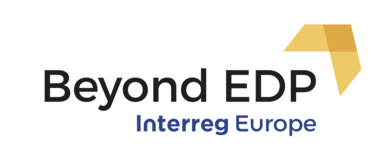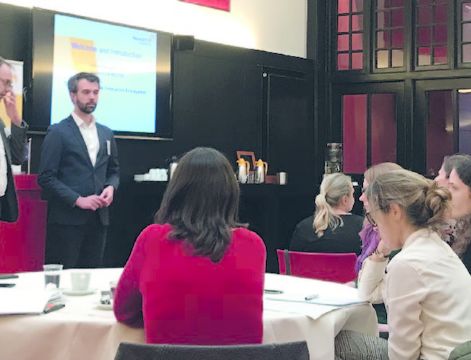Last March, all partners from the Beyond EDP project along with some of their stakeholders gathered in Valladolid (Spain) to continue working on their way to find solutions on how to improve the Entrepreneurial Discovery Process (EDP) management. The event was organised by the project partner Universities and Higher Education of Castilla y León (FUESCYL) and took place from the 21st to the 23rd of March in the Cultural Centre Miguel Delibes. It focused mainly on the in-depth analysis of the EDP management in Castilla y León. In addition, other important matters were also tackled such as taskforces workshops and collaboration with the S3 Platform.
Framework
Castilla y León was the second region in the Beyond EDP project to undergo a peer review. It was carried out according to the specific methodology established by the project, which offers a common framework for analysis of EDP management in the different partner regions involved in the project, allowing comparisons and further analyses in the future.
During the Peer Review sessions, different aspects of the EDP management in Castilla y León were introduced to the participants. Firstly, an overview of the region was given, followed by the explanation on how the regional Peer Review had been developed; being highlighted the great contribution from the members of the Regional Stakeholder Group, which filled in a questionnaire regarding their experiences with EDP. Afterwards, an in-depth analysis of the EDP management in Castilla y León was carried out in terms of:
- objectives of the EDP;
- main characteristics of the EDP;
- measurable outcomes of the EDP, and
- EDP monitoring and evaluation.
Later, a lively and rich discussion was opened in which doubts were clarified and some ideas for improvement were proposed.
Good Practices
Another Peer Review session was focused on the three good practices regarding EDP management which have been identified in different contexts of Castilla y León– Public Administration, Public University and Cluster. First of all, the Innovation Director from the General Foundation of the University of Valladolid explained their experience with EDP during the elaboration of their Strategic Knowledge Transfer Plan 2016-2010. Secondly, the R&D&I Manager of the Food Industry Cluster Vitartis, presented the use of EDP in their day to day activities. Finally, the Deputy Commissioner for Science and Technology of Castilla y León, described the methodology used, including EDP, for the elaboration of the Regional Pattern of Specialisation.
The Beyond EDP project has also established 3 taskforces in order to answer EDP issues that partners have found the most impactful in their regional context. During the event, the first workshops of taskforces 1 and 2 were launched and were developed in parallel sessions. On one hand, the taskforce 1 deals with the challenges of EDP in relation to its management during the implementation phase of RIS3 and is led by Otto-von-Guericke-University Magdeburg; counting on the participation of the expert Dominique Foray during its first workshop. On the other hand, taskforce 2 deals with EDP as a mean to get the right policy mix to improve RIS3 and is led by Lodzkie Region. Both meetings were characterised by active involvement of all their members through lively discussions and they are the starting point for next meetings. Finally, leaders of the taskforces came up with some conclusions that shared with all partners in a following wrap-up session.
Within the collaboration framework of the project with the S3 Platform, representatives of this platform presented the results of the Survey on Entrepreneurial Discovery Process they carried out among entities from the Beyond EDP project, the Spanish Association of Regional Development Agencies and the Lagging Regions project. With this survey, they sought to understand how the EDP was and is being articulated across the EU, in the design and implementation phase of the RIS3. For more information: http://s3platform.jrc.ec.europa.eu.
Steering Committee
The event also included the second Steering Committee Meeting of the project, in which an overview on the status of the project and future activities was given as well as other management issues were tackled, being the withdrawal and replacement of the project partner Nord France Innovation Development (NFID) one of the uppermost. In relation with it, the Steering Committee members approved unanimously the integration of the Region Bourgogne Franche Comté as a new project partner, subject to the Joint Secretariat approval.
The Castilla y León Peer Review Event provided a great opportunity to share knowledge and experiences among partners, constituting a further step in finding new solutions aiming at improving the RIS3 effectiveness through the EDP management.









